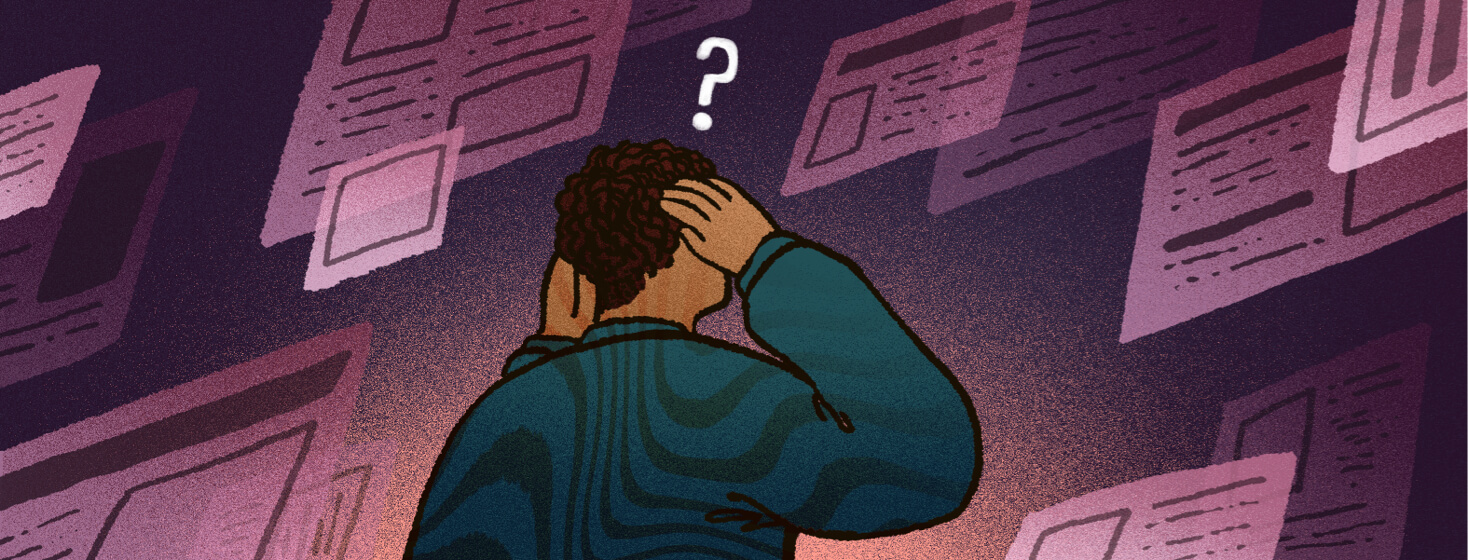Does Having MS Mean You Identify As Disabled?
In early April, I attended a virtual writers’ conference and was immediately drawn to a group of workshops that prioritized the voices, ideas, and practices of writers with some sort of disability.
For instance, I attended a poetry panel discussing disfluent writers. The panelists focused on the challenges of writers with speech disabilities (dystonia, stuttering, dysarthria) caused by any number of conditions (cerebral palsy, deafness, neurological disorders).
Does having MS mean you're disabled?
Overall, these were wonderful workshops, perhaps the best of the entire conference. But in each case, a question was posed that left me wondering: As a person with MS, do I identify as disabled? The short answer? No.
This left me feeling a little out of place in the workshops, like a voyeur instead of a student. Which is weird. I left behind a healthcare career I loved because of MS. The circadian disruption of overnight shiftwork put me on a collision course with relapse that just wasn’t worth the risk.
Yet, I don’t feel like I qualify as disabled. To me, disabled means certain limitations prevent me from performing (forgive the healthcare jargon) "activities of daily living."
Assessing my disability
After all, I can:
- Walk (even if sometimes it’s a crooked path)
- Talk (even if my words aren’t always forthcoming or I trip over them with a strange and unexpected slur)
- Maintain basic hygiene (even if I might need a nap after)
- Feed myself (even if annoyingly powerful stretches of hiccups make it hard to eat)
- Cook (even if I occasionally forget the pan on the stove until it’s too late and I have to start over)
- Read (even if weird MS fatigue blurs my 20/20 vision or wires cross, making comprehension temporarily impossible)
- Do basic math (even if cognitive fog obscures my focus and I need my smartphone’s calculator for the simplest computations)
Does that make me disabled? I guess it depends on who you ask.
What does disabled mean?
The ordinary healthy person may consider a person disabled if they’re impaired in some obvious way. To them, a person in a wheelchair is disabled, but a person with cognitive fog isn’t. (Allow me to acknowledge the very active people in wheelchairs I know who cringe at the term disabled).
However, the ADA National Network defines disabled in strokes both broad and context-specific. You’re regarded as disabled if you’re:1
- Impaired but it doesn’t substantially limit your activities
- Impaired and it does substantially limit your activities only as a result of the attitudes of others toward you
- Not impaired but treated like you are
Meanwhile, your neurologist may use the expanded disability status scale (EDSS) to gauge your disability status. My EDSS score is 3.0, meaning mild to moderate disability. I still don’t identify as disabled.2
What does disability mean?
Aside from the negative social connotations attached to it, the term disability is a practical measure, less medical and more legal. In its formal application, disability implies an objectively measurable status of ability. It’s used to identify financial needs and justify financial support for those whose impairments prevent them from earning a living or paying for healthcare services or living expenses.3
By this definition, I’m definitely not disabled. While I left a job voluntarily because of MS, I pivoted to a sustainable working arrangement and I’m not the household breadwinner.
Disability as a legal status is rather complex. The ADA’s definition of disability differs from the definition needed to apply for Social Security disability benefits in ways that only a good lawyer can parse out. The National MS Society can help you decide if you need to hire an attorney or advocate if need be.3-5
I wonder if this is why I don’t identify as disabled. I don’t draw disability benefits, nor do I qualify for them in either scenario.
Disabled, disability – do these words even matter?
On a more existential level, I feel like I’m not disabled even if the ADA and EDSS say I am. I still conduct my days mostly unimpeded by occasional MS-related setbacks. I understand and recognize this privilege. And the last thing I want to do is co-opt the reality, resources, or support for those more clearly impacted by MS.
Yet the unpredictability of MS is not lost on me. Odds are, half of us with relapsing-remitting MS will develop secondary progressive disease within 10 years. Ninety percent of us will transition to SPMS within 25 years. With that transition comes a progressive accumulation of “legal” and “medical” disability.6
I'm in year 8, post-diagnosis. Might my 3.0 EDSS score suddenly jump to 6.0? Who knows? If that happens, and I can no longer work or afford my living expenses or healthcare bills, then these words, accurate or not, will matter, indeed.

Join the conversation